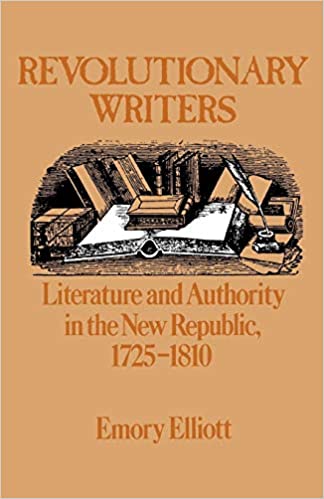By Emory Elliott (NHC Fellow, 1979–80)

New York: Oxford University Press, 1982
From the publisher’s description:
Elliott demonstrates how America's first men of letters--Timothy Dwight, Joel Barlow, Philip Freneau, Hugh Henry Brackenridge, and Charles Brockden Brown--sought to make individual genius in literature express the collective genius of the American people. Without literary precedent to aid them, Elliott argues, these writers attempted to convey a vision of what America ought to be; and when the moral imperatives implicit in their writings were rejected by the vast number of their countrymen they became pioneers of another sort--the first to experience the alienation from mainstream American culture that would become the fate of nearly all serious writers who would follow.
Subjects
Literature / History / American Literature / Authors / American Revolution / Thirteen Colonies / Intellectual History /Elliott, Emory (NHC Fellow, 1979–80). Revolutionary Writers: Literature and Authority in the New Republic, 1725-1810. New York: Oxford University Press, 1982.